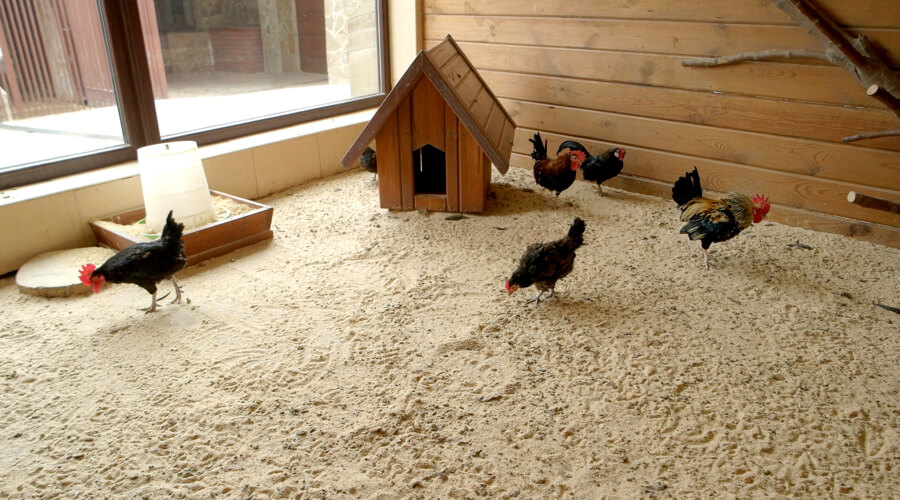When it comes to ensuring the well-being of your feathered friends, understanding what herbs are best for poultry gut health can make a significant difference. The digestive health of poultry is crucial not only for their growth but also for their overall vitality. Introducing herbs into their diet can be a natural and effective way to promote a healthy gut. Let’s delve deeper into this fascinating topic.

The Importance of Gut Health in Poultry
Gut health is paramount for poultry as it affects nutrient absorption, immunity, and overall health. A healthy gut helps in the efficient digestion of food, which is vital for the birds’ growth and productivity. By focusing on gut health, farmers can ensure that their poultry is strong, healthy, and productive.
Herbs that Aid in Digestion
Certain herbs are renowned for their digestive benefits. These include:
- Oregano: Known for its antimicrobial properties, oregano can help in maintaining a healthy gut flora.
- Thyme: This herb aids in digestion and has natural antibacterial properties.
- Garlic: Often used as a natural antibiotic, garlic supports the digestive system and boosts immunity.
Why Choose Herbs for Poultry?
Herbs offer a natural and holistic approach to poultry health. They are not only cost-effective but also reduce the reliance on synthetic medications. By incorporating herbs, poultry owners can ensure a natural balance in their birds’ diet.
Anti-inflammatory Herbs
Inflammation can affect the gut health of poultry. Herbs like turmeric and ginger are known for their anti-inflammatory properties and can be beneficial in reducing gut inflammation.
How to Introduce Herbs to Poultry
Introducing herbs to poultry can be done in various ways:
- Mixing dried herbs with their feed.
- Creating a herbal tea for poultry to drink.
- Sprinkling fresh herbs in their living area to encourage foraging.
For more detailed guidance on how to introduce herbs safely, you can refer to this guide.
Herbs for Boosting Immunity
Immunity is closely linked to gut health. Herbs such as echinacea and astragalus enhance the immune system, ensuring that poultry remains healthy and resilient against diseases.
Understanding the Role of Probiotics and Prebiotics
Probiotics and prebiotics play a crucial role in maintaining gut health. While probiotics introduce beneficial bacteria, prebiotics serve as food for these bacteria, ensuring a healthy gut environment.
Popular Herbal Combinations
Combining herbs can enhance their efficacy. Popular combinations include:
- Oregano and thyme for antimicrobial effects.
- Garlic and ginger for boosting immunity and reducing inflammation.
For more insights into combining herbs, check out this resource.
Herbs vs. Commercial Supplements
While commercial supplements are available, herbs offer a natural alternative without the risk of chemical residues. They are also sustainable and environmentally friendly.
Herbs for Stress Reduction
Stress can adversely affect gut health. Herbs like chamomile and lavender are known for their calming properties and can help reduce stress in poultry.

Safety Concerns and Precautions
While herbs are generally safe, it’s essential to introduce them gradually and monitor the birds for any adverse reactions. Always ensure that the herbs used are free from pesticides and contaminants.
FAQs
- Can I use herbs for all types of poultry? Yes, herbs can be used for various poultry types, including chickens, ducks, and turkeys. However, always start with small amounts and observe the birds’ reactions.
- How often should I give herbs to my poultry? It depends on the type of herb and its purpose. Some herbs can be given daily, while others are best used occasionally.
- Are there any herbs to avoid? While most culinary herbs are safe, it’s best to avoid herbs like sage and parsley in large amounts as they can cause issues in some poultry.
In conclusion, understanding what herbs are best for poultry gut health can transform the way you care for your birds. By incorporating the right herbs, you can ensure that your poultry remains healthy, productive, and happy. For more natural solutions for your poultry, consider visiting this external resource.
This article contains affiliate links. We may earn a commission at no extra cost to you.











